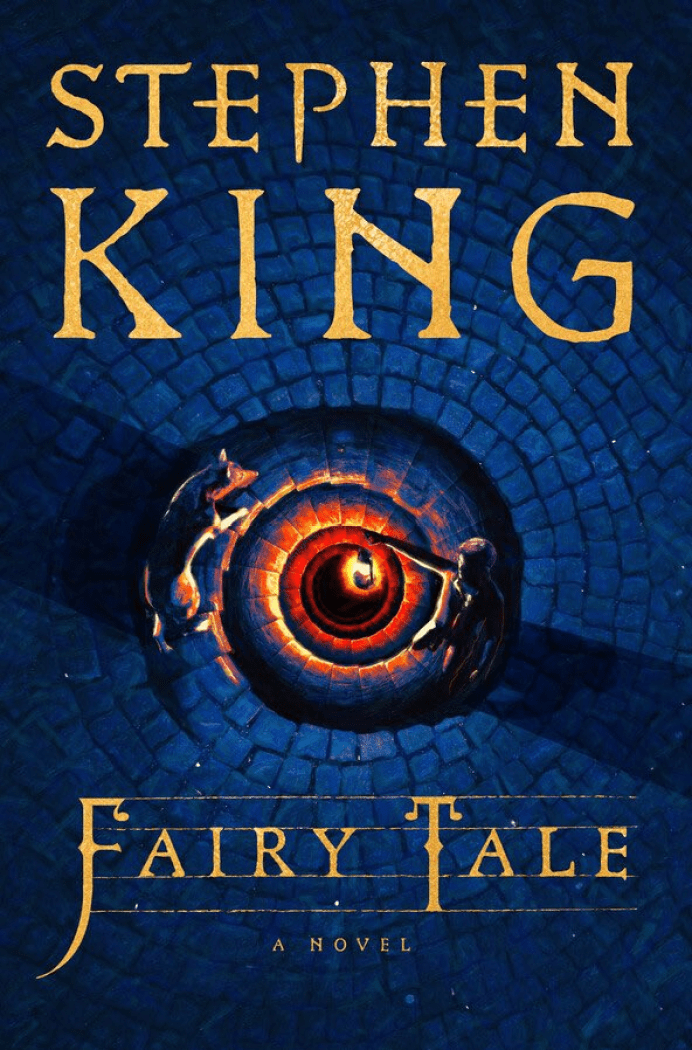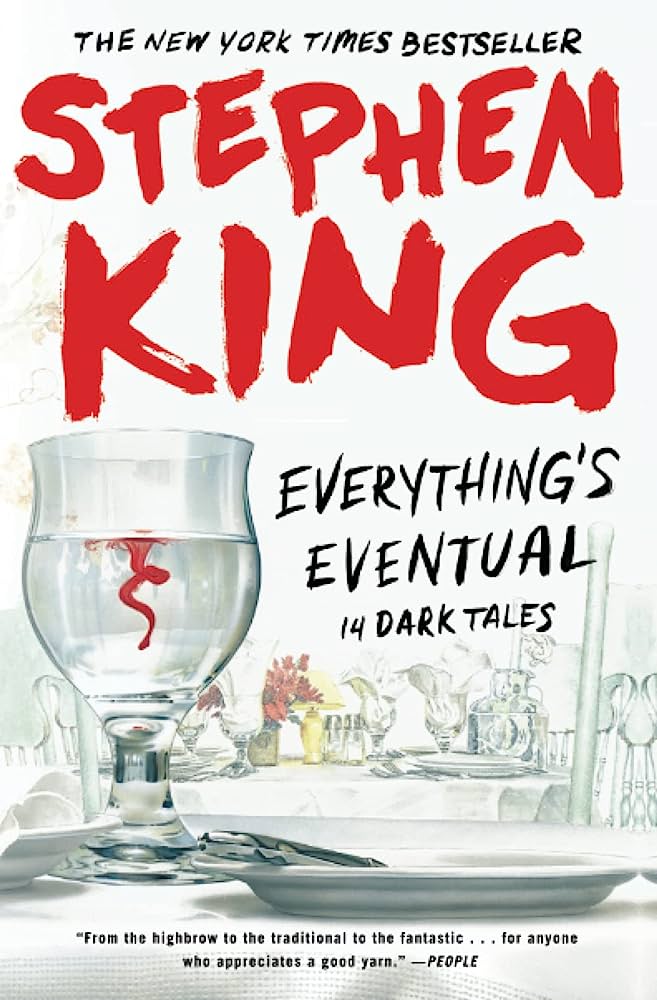The Haunting Families: Dysfunction And Secrets In Stephen King’s Books
Get ready to dive into the dark and twisted world of Stephen King’s books, where haunting families, dysfunction, and secrets lurk around every corner. Stephen King, the master of horror, has captivated readers for decades with his chilling tales that explore the depths of human nature. From the iconic “The Shining” to the spine-tingling “Pet Sematary,” King’s novels are filled with families plagued by their own demons and skeletons in the closet.
In these haunting stories, dysfunction becomes a central theme as characters navigate through complex family dynamics, facing their deepest fears and darkest secrets. Whether it’s a father who descends into madness or a mother with a hidden past, King’s books delve into the depths of the human psyche, unraveling the mysteries that lie within. With his unique ability to blend supernatural elements with relatable characters, King creates a world where the line between reality and the supernatural is blurred, leaving readers on the edge of their seats.
So, grab a flashlight, lock the doors, and get ready to explore the haunting families, dysfunction, and secrets that await you in Stephen King’s books. Prepare to be both terrified and enthralled as you journey into the twisted minds of his unforgettable characters. Are you ready to uncover the chilling secrets that lie within the pages of Stephen King’s novels? Let’s dive in and discover the darkness that awaits.
The haunting families in Stephen King’s books are often plagued by dysfunction and buried secrets. King masterfully weaves these elements into his narratives, creating a chilling atmosphere that keeps readers on the edge of their seats. From the Torrance family in “The Shining” to the Denbrough family in “It,” these families face supernatural horrors that mirror their internal struggles. Through his exploration of the dark side of family dynamics, King taps into universal themes of fear, trauma, and the power of secrets. Brace yourself for a thrilling and haunting journey into the depths of these families’ darkest secrets.

The Haunting Families: Dysfunction and Secrets in Stephen King’s Books
Stephen King is a master of horror, known for his ability to create chilling and suspenseful stories that captivate readers. One recurring theme in his books is the presence of haunting families, filled with dysfunction and dark secrets. These families add an extra layer of complexity to King’s already terrifying tales, creating a sense of unease and tension that keeps readers on the edge of their seats.
In many of King’s novels, dysfunctional families are at the center of the story. These families are often plagued by deep-seated issues such as addiction, abuse, or mental illness. The characters within these families are flawed and deeply human, making them relatable and adding to the overall sense of realism in King’s writing. By exploring the dynamics of these haunting families, King delves into the darker aspects of human nature, forcing readers to confront their own fears and anxieties.
The Role of Dysfunction in King’s Stories
Dysfunction is a common theme throughout Stephen King’s body of work. The dysfunctional families he portrays are not only the victims of supernatural horrors but also the catalysts for the terrifying events that unfold. The dysfunction within these families often serves as a breeding ground for darkness, amplifying the horror and creating a sense of impending doom.
One of the ways King explores dysfunction is through the breakdown of communication within these families. Secrets are kept hidden, and important information is withheld, leading to misunderstandings and ultimately disastrous consequences. This breakdown of communication mirrors the breakdown of sanity and stability, adding to the overall sense of unease and tension.
The Impact of Secrets on Haunting Families
Secrets play a significant role in Stephen King’s stories, particularly within haunting families. These secrets are often the driving force behind the supernatural occurrences and the main source of tension within the narrative. The characters are haunted not only by the external horrors they face but also by their own internal demons, represented by the secrets they carry.
The weight of these secrets adds a layer of complexity to the characters, making them more multidimensional and relatable. As readers, we are drawn into their struggles and anxieties, empathizing with their pain and fear. The revelation of these secrets often serves as a turning point in the story, leading to a climax and resolution that is both satisfying and unsettling.
The Psychological Impact of Dysfunction in King’s Books
Stephen King’s portrayal of haunting families goes beyond the surface-level scares and delves deep into the psychological impact of dysfunction. The characters in his books are not only fighting external monsters but also battling their own inner demons. This psychological element adds a layer of complexity to the storytelling and allows readers to explore the darker aspects of the human psyche.
One of the ways King achieves this psychological depth is through the exploration of trauma within these families. The characters are often shaped by their past experiences, which have left them scarred and vulnerable. By examining the psychological aftermath of trauma, King highlights the long-lasting effects it can have on individuals and their relationships.
The Power of Dysfunction in Creating Fear
Dysfunction and secrets within haunting families serve as powerful tools for creating fear in Stephen King’s books. The dysfunction itself becomes a source of horror, as readers witness the destructive consequences of broken relationships and fractured dynamics. The secrets add an element of suspense, as readers are left guessing and anticipating the revelation of the hidden truths.
By intertwining dysfunction and secrets within his haunting families, King creates a sense of unease that lingers throughout the narrative. The fear is not only derived from the supernatural elements but also from the very real and relatable aspects of human nature that are explored within these stories. This combination of the supernatural and the psychological makes King’s books truly haunting and unforgettable.
Conclusion
In conclusion, Stephen King’s books are filled with haunting families that add an extra layer of depth and terror to his stories. Dysfunction and secrets play significant roles in these families, driving the narrative and creating a sense of unease and tension. By exploring the psychological impact of dysfunction and the power of hidden truths, King creates truly chilling tales that resonate with readers long after the last page is turned.
The Haunting Families: Dysfunction and Secrets in Stephen King’s Books
- Stephen King’s books often explore families that are plagued by dysfunction and secrets.
- These haunting families create a sense of unease and suspense in the stories.
- The dysfunction within these families often stems from deep-rooted issues and traumatic events.
- Secrets play a significant role in the plot, adding layers of mystery and tension.
- King’s portrayal of haunting families serves as a reflection of the dark side of human nature and the complexities of family dynamics.
Frequently Asked Questions
What are some common themes of dysfunction and secrets in Stephen King’s books?
In Stephen King’s books, dysfunction and secrets are recurring themes that add depth and suspense to his stories. Many of his characters come from troubled families or have dark secrets that haunt them. The dysfunction can manifest in various ways, such as abusive relationships, neglectful parents, or strained family dynamics. Secrets play a significant role in driving the plot forward, as characters grapple with the consequences of their hidden pasts.
King often explores the impact of these themes on the characters’ psyche, portraying their struggles to overcome their dysfunctional family backgrounds or confront the dark secrets they’ve been keeping. These elements of dysfunction and secrets create a sense of unease and tension throughout his books, keeping readers engaged and eager to uncover the truth behind the haunting families.
How does dysfunction in Stephen King’s books affect the characters?
Dysfunction in Stephen King’s books deeply affects the characters, shaping their personalities and influencing their choices. Characters who come from dysfunctional families often carry emotional scars and struggle with trust issues. They may exhibit self-destructive behaviors or struggle to form healthy relationships.
The dysfunction can also create a cycle of trauma, as characters unknowingly repeat the patterns of their troubled upbringing. This adds complexity to their character development and helps to drive the narrative forward. Ultimately, the dysfunction serves as a catalyst for the characters’ growth and transformation as they confront their past and strive to break free from its grip.
Why are secrets important in Stephen King’s books?
Secrets play a crucial role in Stephen King’s books, adding intrigue and suspense to the narrative. They create a sense of mystery and keep readers guessing as they try to unravel the hidden truths. Secrets often hold the key to understanding the characters’ motivations and actions.
By keeping secrets, characters are able to maintain a façade, presenting themselves differently to the outside world. This creates a tension between appearance and reality, adding depth to the storytelling. Secrets also serve as a source of conflict, as characters are forced to confront the consequences of their hidden pasts and make difficult choices that may have far-reaching consequences.
How does Stephen King explore the impact of dysfunctional families on his characters?
Stephen King delves deep into the impact of dysfunctional families on his characters, capturing the psychological toll it takes on their lives. He portrays the lasting effects of abuse, neglect, and trauma, showcasing the characters’ struggles to find their identity and overcome the scars of their upbringing.
King’s exploration of dysfunctional families goes beyond surface-level tropes, diving into the complex dynamics and the long-lasting consequences they have on the characters’ mental well-being. He delves into the complexities of family relationships, exploring themes of forgiveness, redemption, and the power of resilience in the face of adversity.
Are dysfunctional families and secrets the main focus of Stephen King’s books?
Dysfunctional families and secrets are prominent themes in Stephen King’s books, but they are not the sole focus. King’s works encompass a wide range of genres, including horror, supernatural, and psychological thrillers. While dysfunction and secrets often play a significant role in driving the plot, they are just one aspect of the intricate narratives he weaves.
King’s storytelling prowess lies in his ability to create multi-dimensional characters and explore various themes, such as fear, loss, and the human capacity for darkness. Dysfunction and secrets serve as powerful tools to deepen the emotional impact of his stories, making them all the more captivating and unforgettable.
Stephen King’s newest book is out now!
Final Thought: Unveiling the Dark Secrets in Stephen King’s Haunting Families
As we journeyed through the eerie pages of Stephen King’s books, we were immersed in a world of haunting families, dysfunction, and long-kept secrets. With each twist and turn, King masterfully crafted tales that both captivated and chilled our souls. The exploration of these themes not only adds depth to his stories but also reflects the darkness that can lurk within the human psyche.
In King’s novels, dysfunctional families serve as a backdrop for the horrors that unfold. From the tormented Torrance family in “The Shining” to the sinister Pennywise preying on the vulnerable Losers’ Club in “It,” these characters grapple with their inner demons and the external terrors that surround them. Through their struggles, King reminds us of the fragility of familial bonds and the destructive power of secrets.
By delving into the depths of the human psyche, Stephen King’s works resonate with readers on a visceral level. The exploration of dysfunctional families and hidden secrets taps into our own fears and anxieties, reminding us that darkness can lurk in the most unexpected places. Whether it’s the chilling realization of a loved one’s sinister nature or the unraveling of long-kept family secrets, King’s narratives keep us on the edge of our seats, eagerly turning pages to uncover the truth.
In conclusion, Stephen King’s ability to intertwine dysfunction and secrets within his stories not only adds a chilling layer to his narratives but also offers a reflection of the darkness that can exist in our own lives. As we close the pages of his books, we are left with a lingering sense of unease, haunted by the realization that the scariest monsters may not be supernatural creatures, but the demons lurking within ourselves and our families. So, let us embrace the thrill of the unknown and continue to embark on these haunting journeys, for within the darkness lies the power to confront our deepest fears and emerge stronger on the other side.






